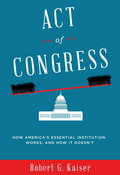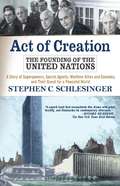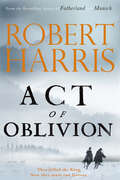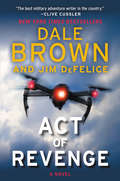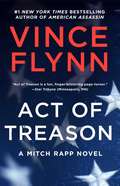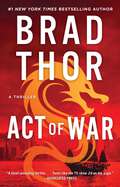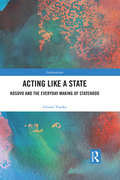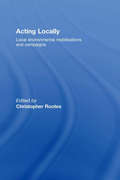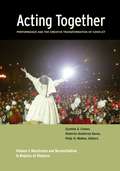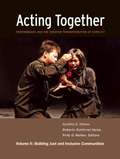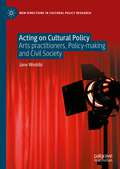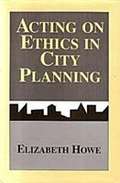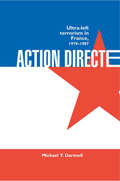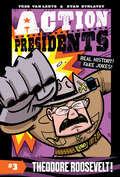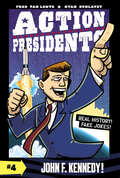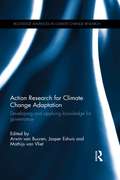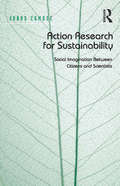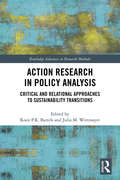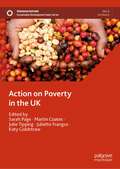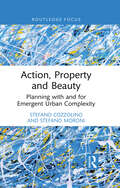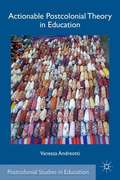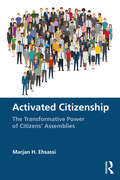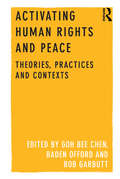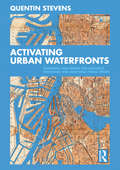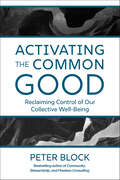- Table View
- List View
Act of Congress: How America's Essential Institution Works, and How It Doesn't
by Robert G. KaiserAn eye-opening account of how Congress today really works--and doesn't--that follows the dramatic journey of the sweeping financial reform bill enacted in response to the Great Crash of 2008.The founding fathers expected Congress to be the most important branch of government and gave it the most power. When Congress is broken--as its justifiably dismal approval ratings suggest--so is our democracy. Here, Robert G. Kaiser, whose long and distinguished career at The Washington Post has made him as keen and knowledgeable an observer of Congress as we have, takes us behind the sound bites to expose the protocols, players, and politics of the House and Senate--revealing both the triumphs of the system and (more often) its fundamental flaws. Act of Congress tells the story of the Dodd-Frank Act, named for the two men who made it possible: Congressman Barney Frank, brilliant and sometimes abrasive, who mastered the details of financial reform, and Senator Chris Dodd, who worked patiently for months to fulfill his vision of a Senate that could still work on a bipartisan basis. Both Frank and Dodd collaborated with Kaiser throughout their legislative efforts and allowed their staffs to share every step of the drafting and deal making that produced the 1,500-page law that transformed America's financial sector. Kaiser explains how lobbying affects a bill--or fails to. We follow staff members more influential than most senators and congressmen. We see how Congress members protect their own turf, often without regard for what might best serve the country--more eager to court television cameras than legislate on complicated issues about which many of them remain ignorant. Kaiser shows how ferocious partisanship regularly overwhelms all other considerations, though occasionally individual integrity prevails. Act of Congress, as entertaining as it is enlightening, is an indispensable guide to a vital piece of our political system desperately in need of reform.
Act of Creation: The Founding of the United Nations
by Stephen C. SchlesingerIn Act of Creation, Stephen C. Schlesinger tells a pivotal and little-known story of how Secretary of State Edward Stettinius and the new American President, Harry Truman, picked up the pieces of the faltering campaign initiated by Franklin Roosevelt to create a "United Nations. " Using secret agents, financial resources, and their unrivaled position of power, they overcame the intrigues of Stalin, the reservations of wartime allies like Winston Churchill, the discontent of smaller states, and a skeptical press corps to found the United Nations. The author reveals how the UN nearly collapsed several times during the conference over questions of which states should have power, who should be admitted, and how authority should be divided among its branches. By shedding new light on leading participants like John Foster Dulles, John F. Kennedy, Adlai Stevenson, Nelson Rockefeller, and E. B White, Act of Creation provides a fascinating tale of twentieth-century history not to be missed.
Act of Oblivion: A Novel
by Robert HarrisINTERNATIONAL BESTSELLERFrom the bestselling author of Fatherland, The Ghostwriter, Munich, and Conclave comes this spellbinding historical novel that brilliantly imagines one of the greatest manhunts in history: the search for two Englishmen, charged in the killing of King Charles I, by the implacable foe on their trail—an epic journey into the wilds of seventeenth-century New England, and a chase like no other."From what is it they run?"He took a while to reply. By the time he spoke the men had gone inside. He said quietly, &“They killed the King.&”1660. General Edward Whalley and his son-in-law Colonel William Goffe board a ship in London bound for the New World and an uncertain future in exile. They are wanted for the 1649 murder of King Charles I – a brazen execution that marked the culmination of the English Civil War, in which parliamentarians successfully battled royalists for control. But ten years after Charles&’ beheading, the royalists returned to power. Under the provisions of the Act of Oblivion, the fifty-nine men who signed the king&’s death warrant have been found guilty in absentia of high treason. Some parliamentarians, including Oliver Cromwell, are dead; others have been captured, hung, drawn, and quartered. A few are imprisoned for life. But Whalley and Goffe escaped to New England. In London, Richard Nayler, secretary of the regicide committee of the Privy Council, is charged with bringing the traitors back home to justice and will stop at nothing to find them. A substantial bounty hangs over their heads for their capture – dead or alive. Encompassing a period of tremendous upheaval in English history the novel brings alive pivotal moments including the Black Death and the Great Fire of London as Nayler closes in on the exiles. Act of Oblivion is an epic story of religion, vengeance, and of power – and the costs to those who wield it.
Act of Revenge: A Puppet Master Thriller
by Dale Brown Jim DeFeliceWhen terrorists attack Boston, Louis Massina races against time to save the city with a high-tech counteroffensive . . . On Easter Sunday morning, the city of Boston is struck by a widespread and coordinated series of terrorist attacks: an explosion in the T, a suicide bomber at Back Bay Police Station, and heavily armed gunmen taking hostages at the Patriot Hotel. For robotics innovator Louis Massina, aka the Puppet Master, this is far more personal than a savage act of political terrorism. Boston is his city—and one of his employees, Chelsea Goodman, is among the hostages facing certain death. As Chelsea fights from the inside, Massina leads his team of tech geniuses at Smart Metal to deploy every bot, drone, and cyber weapon at their disposal to defeat the fanatics and save his city and friend. That's step one. Step two: Find the twisted mastermind behind the attacks and make him pay.
Act of Treason: Consent To Kill, Act Of Treason, And Protect And Defend (A Mitch Rapp Novel #9)
by Vince FlynnThe fallout from a horrific Washington explosion has just begun, along with CIA superagent Mitch Rapp&’s hunt for a killer with a personal agenda in this &“fun, finger-blistering page-turner&” (Star Tribune, Minneapolis) in the #1 New York Times bestselling Mitch Rapp series.In the final weeks of a fierce presidential campaign, a motorcade carrying candidate Josh Alexander is shattered by a car bomb. Soon after the attack, Alexander is carried to victory by a sympathy vote, but his assailants have not been found. When CIA director Irene Kennedy and Special Agent Skip McMahon receive damaging intelligence on Washington&’s most powerful players, they call on Mitch Rapp—the one man reckless enough to unravel a global network of contract killers on an explosive mission that leads back to the heart of our nation&’s capital…and the inner sanctum of the Oval Office. &“Taut writing and [a] plausible vision of the real work of the intelligence community&” (Publishers Weekly) make Act of Treason an unputdownable and heart-pounding thriller.
Act of War: A Thriller (The Scot Harvath Series #13)
by Brad ThorThe #1 New York Times and #1 Wall Street Journal bestselling author Brad Thor delivers his most frightening and pulse-pounding thriller ever!After a CIA agent mysteriously dies overseas, his top asset surfaces with a startling and terrifying claim. There&’s just one problem—no one knows if she can be trusted. But when six exchange students go missing, two airplane passengers trade places, and one political-asylum seeker is arrested, a deadly chain of events is set in motion. With the United States facing an imminent and devastating attack, America&’s new president must turn to covert counterterrorism operative Scot Harvath to help carry out two of the most dangerous operations in the country&’s history. Code-named &“Gold Dust&” and &“Blackbird,&” they are shrouded in absolute secrecy as either of them, if discovered, will constitute an act of war.
Acting Like a State: Kosovo and the Everyday Making of Statehood (Interventions)
by Gëzim VisokaHow do emerging states obtain international recognition and secure membership of international organisations in contemporary world politics? This book provides the first in-depth study of Kosovo’s diplomatic approach to becoming a sovereign state by obtaining international recognition and securing membership of international organisations. Analysing the everyday diplomatic discourses, performances, and entanglements, this book contends that state-becoming is not wholly determined by systemic factors, normative institutions, or the preferences of great powers; the diplomatic agency of the fledgling state plays a far more important role than is generally acknowledged. Drawing on institutional ethnographic research and first-hand observations, this book argues that Kosovo’s diplomatic success in consolidating its sovereign statehood has been the situational assemblage of multiple discourses, practiced through a broad variety of performative actions, and shaped by a complex entanglement with global assemblages of norms, actors, relations, and events. Accordingly, this book contributes to expanding our understanding of the everyday diplomatic agency of emerging states and the changing norms, politics, and practices regarding the diplomatic recognition of states and their admission to international society.
Acting Locally: Local Environmental Mobilizations and Campaigns (Environmental Politics)
by Christopher RootesLocal campaigns are the most persistent and ubiquitous forms of environmental contention. National and transnational mobilisations come and go and the attention they receive from mass media ebbs and flows, but local campaigns persist. The persistence or re-emergence of local campaigns is also a reminder that it remain possible to mobilise people around environmental issues, and they have often served as sources of innovation in and re-invigoration of national organisations that have allegedly been co-opted by the powerful and incorporated into the established political and administrative system. But local environmental campaigns have been relatively neglected in the scientific literature. Drawing on examples from Britain, France, Greece, Ireland and Italy, this book seeks to redress that neglect by examining the networks among actors and organisations that connect local mobilizations to the larger environmental movement and political systems, the ways in which local disputes are framed in order to connect with national and global issues, and the persistent impacts of the peculiarities of place upon environmental campaigns. This book was previously published as a special issue of Environmental Politics
Acting Together I: Resistance and Reconciliation in Regions of Violence
by Edited by Cynthia E. Cohen, Roberto Gutiérrez Varea, and Polly O. WalkerCourageous artists working in conflict regions describe exemplary peacebuilding performances and groundbreaking theory on performance for transformation of violence.Acting Together: Performance and the Creative Transformation of Conflict is a two-volume work describing peacebuilding performances in regions beset by violence and internal conflicts. Volume I: Resistance and Reconciliation in Regions of Violence, emphasizes the role theatre and ritual play both in the midst and in the aftermath of direct violence, while Volume II: Building Just and Inclusive Communities, focuses on the transformative power of performance in regions fractured by "subtler" forms of structural violence and social exclusion.Volume I: Resistance and Reconciliation in Regions of Violence focuses on the role theatre and ritual play both in the midst and in the aftermath of violence. The performances highlighted in this volume nourish and restore capacities for expression, communication, and transformative action, and creatively support communities in grappling with conflicting moral imperatives surrounding questions of justice, memory, resistance, and identity. The individual chapters, written by scholars, conflict resolution practitioners, and artists who work directly with the communities involved, offer vivid firsthand accounts and analyses of traditional and nontraditional performances in Serbia, Uganda, Sri Lanka, Palestine, Israel, Argentina, Peru, India, Cambodia, Australia, and the United States.Complemented by a website of related materials, a documentary film, Acting Together on the World Stage, that features clips and interviews with the curators and artists, and a toolkit, or "Tools for Continuing the Conversation," that is included with the documentary as a second disc, this book will inform and inspire socially engaged artists, cultural workers, peacebuilding scholars and practitioners, human rights activists, students of peace and justice studies, and whoever wishes to better understand conflict and the power of art to bring about social change.The Acting Together project is born of a collaboration between Theatre Without Borders and the Program in Peacebuilding and the Arts at the International Center for Ethics, Justice, and Public Life at Brandeis University. The two volumes are edited by Cynthia E. Cohen, director of the aforementioned program and a leading figure in creative approaches to coexistence and reconciliation; Roberto Gutierrez Varea, an award-winning director and associate professor at the University of San Francisco; and Polly O. Walker, director of Partners in Peace, an NGO based in Brisbane, Australia..
Acting Together II: Building Just and Inclusive Communities
by Edited by Cynthia E. Cohen, Roberto Gutiérrez Varea and Polly O. WalkerActing Together, Volume ll, continues from where the first volume ends documenting exemplary peacebuilding performances in regions marked by social exclusion structural violence and dislocation. Acting Together: Performance and the Creative Transformation of Conflict is a two-volume work describing peacebuilding performances in regions beset by violence and internal conflicts. Volume I, Resistance and Reconciliation in Regions of Violence, emphasizes the role theatre and ritual play both in the midst and in the aftermath of direct violence, while Volume II: Building Just and Inclusive Communities, focuses on the transformative power of performance in regions fractured by "subtler" forms of structural violence and social exclusion.Volume I: Resistance and Reconciliation in Regions of Violence focuses on the role theatre and ritual play both in the midst and in the aftermath of violence. The performances highlighted in this volume nourish and restore capacities for expression, communication, and transformative action, and creatively support communities in grappling with conflicting moral imperatives surrounding questions of justice, memory, resistance, and identity. The individual chapters, written by scholars, conflict resolution practitioners, and artists who work directly with the communities involved, offer vivid firsthand accounts and analyses of traditional and nontraditional performances in Serbia, Uganda, Sri Lanka, Palestine, Israel, Argentina, Peru, India, Cambodia, Australia, and the United States.Complemented by a website of related materials, a documentary film, Acting Together on the World Stage, that features clips and interviews with the curators and artists, and a toolkit, or "Tools for Continuing the Conversation," that is included with the documentary as a second disc, this book will inform and inspire socially engaged artists, cultural workers, peacebuilding scholars and practitioners, human rights activists, students of peace and justice studies, and whoever wishes to better understand conflict and the power of art to bring about social change.The Acting Together project is born of a collaboration between Theatre Without Borders and the Program in Peacebuilding and the Arts at the International Center for Ethics, Justice, and Public Life at Brandeis University. The two volumes are edited by Cynthia E. Cohen, director of the aforementioned program and a leading figure in creative approaches to coexistence and reconciliation; Roberto Gutierrez Varea, an award-winning director and associate professor at the University of San Francisco; and Polly O. Walker, director of Partners in Peace, an NGO based in Brisbane, Australia.
Acting on Cultural Policy: Arts Practitioners, Policy-Making and Civil Society (New Directions in Cultural Policy Research)
by Jane WoddisThis book investigates the role of arts practitioners in cultural policy-making, challenging the perception that arts practitioners have little or no involvement in policy and seeking to discover the extent and form of their engagement. Examining the subject through a case-study of playwriting policy in England since 1945, and paying particular attention to playwrights’ organisations and their history of self-directed activity, the book explores practitioners’ participation in cultural policy-making, encompassing both “invited” and “uninvited” interventions that also weave together policy activity and creative practice. It discusses why their involvement matters, and argues that arts practitioners and their organisations can be understood as participants in civil society whose policy activity contributes to the maintenance and enlargement of democratic practices and values.
Action Directe: Ultra Left Terrorism in France 1979-1987
by Michael Y. DartnellIn defining Action Directe's mixture of millenarianism, workerism and nihilism, this study explains why the group turned to a strategy of murderous strikes and how a revolutionary political faction emerged in a stable western society.
Action Presidents #3: Theodore Roosevelt! (Action Presidents #3)
by Fred Van Lente“A delightful, educational spin on history—and plenty of jokes,” said School Library Journal. “Sheer joy,” praised Booklist in a starred review. Finalist for the 2019 Excellence in Graphic Literature Award in Middle Grade Nonfiction U.S. history comes to life like never before in this full-color graphic novel! We all know that Theodore Roosevelt protected the environment and was the cousin of President Franklin Roosevelt. But did you also know that he was the inspiration for the teddy bear, wrote adventure books, and once gave a speech with a gunshot wound in his chest? Wimpy Kid meets the Who Was... series in these hilarious new graphic novels—where the history is real and the jokes are fake—from New York Times bestselling comic book author Fred Van Lente and award-winning cartoonist Ryan Dunlavey. Historically accurate and highly entertaining, Action Presidents’ bold and hilarious comic-style illustration is perfect for curious minds, filled with timelines, maps, charts, and more, readers will keep learning until the last page.
Action Presidents #4: John F. Kennedy! (Action Presidents #4)
by Fred Van Lente“A delightful, educational spin on history—and plenty of jokes,” said School Library Journal. “Sheer joy,” praised Booklist in a starred review. Finalist for the 2019 Excellence in Graphic Literature Award in Middle Grade Nonfiction U.S. history comes to life like never before in this full-color graphic novel! We all know that John F. Kennedy was a World War II hero and a pro at giving speeches. But did you also know he survived shark-infested waters, suffered a case of mistaken identity, and once used a coconut to send a secret message? Wimpy Kid meets the Who Was... series in these hilarious new graphic novels—where the history is real and the jokes are fake—from New York Times bestselling comic book author Fred Van Lente and award-winning cartoonist Ryan Dunlavey. Historically accurate and highly entertaining, Action Presidents’ bold and hilarious comic-style illustration is perfect for curious minds, filled with timelines, maps, charts, and more, readers will keep learning until the last page.
Action Research for Climate Change Adaptation: Developing and applying knowledge for governance (Routledge Advances in Climate Change Research)
by Arwin Van Buuren Jasper Eshuis Mathijs Van VlietGovernments all over the world are struggling with the question of how to adapt to climate change. They need information not only about the issue and its possible consequences, but also about feasible governance strategies and instruments to combat it. At the same time, scientists from different social disciplines are trying to understand the dynamics and peculiarities of the governance of climate change adaptation. This book demonstrates how action-oriented research methods can be used to satisfy the need for both policy-relevant information and scientific knowledge. Bringing together eight case studies that show inspiring practices of action research from around the world, including Australia, Denmark, Vietnam and the Netherlands, the book covers a rich variety of action-research applications, running from participatory observation to serious games and role-playing exercises. It explores many adaptation challenges, from flood-risk safety to heat stress and freshwater availability, and draws out valuable lessons about the conditions that make action research successful, demonstrating how scientific and academic knowledge can be used in a practical context to reach useful and applicable insights. The book will be of interest to scholars and students of climate change, environmental policy, politics and governance.
Action Research for Sustainability: Social Imagination Between Citizens and Scientists
by Jonas EgmoseHow can action research further new research orientations towards sustainability? This book, empirically situated in the field of upstream public engagement, involving local residents, researchers and practitioners in bottom-up processes deliberating on urban sustainability, answers this question by analysing processes of social learning. The book addresses the need to move towards sustainability at societal level as a democratic challenge questioning the way we live on planet earth. By conceptualising sustain-ability as an immanent and emergent ability of ecological and social life, continuously to renew itself without eroding its own foundation of existence, it argues that since sustainability cannot be invented but only supported (or eroded) by science, we need to reframe science in the role of sustaining sustain-ability. Through analyses of a three year action research programme, aiming to provide local citizens with a greater say in the future of urban sustainability research, this book shows how action research can make important methodological contributions to processes of social learning between citizens and scientists by enabling free spaces in peoples everyday life and within academia, where aspects of un-sustainability can be addressed and new imaginations of more sustainable futures emerge.
Action Research in Policy Analysis: Critical and Relational Approaches to Sustainability Transitions (Routledge Advances in Research Methods)
by Julia M. Wittmayer Koen P.R. BartelsToday’s pressing political, social, economic, and environmental crises urgently ask for effective policy responses and fundamental transitions towards sustainability supported by a sound knowledge base and developed in collaboration between all stakeholders. This book explores how action research forms a valuable methodology for producing such collaborative knowledge and action. It outlines the recent uptake of action research in policy analysis and transition research and develops a distinct and novel approach that is both critical and relational. By sharing action research experiences in a variety of settings, the book seeks to explicate ambitions, challenges, and practices involved with fostering policy changes and sustainability transitions. As such it provides crucial guidance and encouragement for future action research in policy analysis and transition research. This text will be of key interest to scholars and students of policy analysis and transition research and more broadly to public administration and policy, urban and regional studies, political science, research and innovation, sustainability science, and science and technology studies. It will also speak to practitioners, policymakers and philanthropic funders aiming to engage in or fund action research.
Action on Poverty in the UK (Sustainable Development Goals Series)
by Sarah Page Katy Goldstraw Martin Coates Julie Tipping Juliette FrangosThis book tackles poverty and policy issues in the UK by discussing successful projects and practices, across lots of short chapters. The first section provides a brief history overview of poverty in the UK over the past two hundred years and discusses the question of why the UK, as a wealthy western nation, still has a poverty issue. It discusses various vulnerable groups and contextual factors which lead to these inequalities. The second section articulates what anti-poverty work is and shares project examples from across the country where anti-poverty workers are supporting people to survive and then to thrive. Lived experiences voices are articulated to present examples of poverty being experienced. This book draws on academic and practitioner work and aims to equip the activist and inform the student, academic and policy maker.
Action, Property and Beauty: Planning with and for Emergent Urban Complexity
by Stefano Moroni Stefano CozzolinoWhat are the challenges and potential of complex and emergent urban systems? This book answers this question by shedding new light on the topics of emergence, complexity, and self-organisation and showing their interconnectedness with other concepts, such as property and beauty, which are usually considered separately. It contributes to the discussion by interpreting and explaining the nature of emergent urban phenomena and suggesting more appropriate design and planning measures.The book explores and untangles these crucial topics in a compact and accessible way by offering fresh interdisciplinary perspectives on the themes of action and interaction, self-organisation, property, neighbourhood adaptability, urban beauty, and suitable public planning and design interventions. It provides novel and crucial insights for students, researchers, and academics in Urban Studies, Planning Theory, Planning Ethics, Planning Law, Legal, Political and Human Geography, Urban and Regional Economics, Urban Sociology, and Urban Design. It is essential for anyone interested in exploring the emergent dynamics of complex urban contexts, as well as for those involved in developing various projects and measures who aim to consider the spontaneous nature of cities seriously.
Actionable Postcolonial Theory in Education
by Vanessa AndreottiAndreotti illustrates how postcolonial theory is applied in the contexts of educational research/critique and in pioneering pedagogical projects. She offers an accessible and useful overview and comparison of theoretical debates related to critiques of Western/Northern hegemony.
Activated Citizenship: The Transformative Power of Citizens' Assemblies
by Marjan H. EhsassiTo counter pervasive levels of citizen disengagement from political institutions, this book examines democratic innovations that meaningfully engage with citizens to address some of the deficits of Western representative democracies.Citizens’ assemblies provide one such innovation, offering opportunities for more consistent participation between elections, more meaningful input in government decision making, and more impactful platforms for participation. This cutting-edge book introduces a new definition for an Activated Citizen, along with a methodology to measure civic and political engagement. Relying on a mixed-methods approach and field research conducted in Paris, Brussels, Ottawa, and Petaluma (California), as well as participant observations, over 180 surveys, 61 in-depth interviews and storytelling, the book provides case studies and in-depth analysis of hotbutton topics including climate change, unhoused populations, democratic expression, assisted suicide and euthanasia. Each chapter weaves quantitative results with rich qualitative testimonies from participants, government representatives, and observers. Based on empirical evidence, the book explores the ways in which government-led citizens’ assemblies can promote a more Activated Citizen. To fully realize the transformative potential of deliberative platforms, a final chapter offers a blueprint for impact, outlining concrete measures along with recommendations for the design and implementation of future government-initiated deliberative platforms.Activated Citizenship urges the deliberative community to be more discerning and intentional to more positively impact participants’ knowledge, sense of community, enthusiasm, political engagement, as well as their sense of meaningful voice. It will be required reading for all students and scholars interested in political participation and democratic innovation.
Activating Human Rights and Peace: Theories, Practices and Contexts
by GOH Bee Chen Baden OffordHuman rights and peace issues and concerns have come about at a critical time. The world has recently witnessed a plethora of turning points that speak of the hopes and vulnerabilities which are inherent in being human and demonstrate that change in the service of human rights and peace is possible. At the same time, however, other events indicate that wherever there is life, there is vulnerability in a world characterized by instability and endemic human suffering. On top of all this, the collapse of the global financial system and the serious, rapid destruction of the environment have brought the world to a precarious state of vulnerability. Activating human rights and peace is, therefore, a project that is always in progress, and is never finally achieved. This enlightening collection of well thought through cases is aimed at academics and students of human rights, political science, law and justice, peace and conflict studies and sociology.
Activating Urban Waterfronts: Planning and Design for Inclusive, Engaging and Adaptable Public Spaces
by Quentin StevensActivating Urban Waterfronts shows how urban waterfronts can be designed, managed and used in ways that can make them more inclusive, lively and sustainable. The book draws on detailed examination of a diversity of waterfronts from cities across Europe, Australia and Asia, illustrating the challenges of connecting these waterfront precincts to the surrounding city and examining how well they actually provide connection to water. The book challenges conventional large scale, long-term approaches to waterfront redevelopment, presenting a broad re-thinking of the formats and processes through which urban redevelopment can happen. It examines a range of actions that transform and activate urban spaces, including informal appropriations, temporary interventions, co-design, creative programming of uses, and adaptive redevelopment of waterfronts over time. It will be of interest to anyone involved in the development and management of waterfront precincts, including entrepreneurs, the creative industries, community organizations, and, most importantly, ordinary users.
Activating the Common Good: Reclaiming Control of Our Collective Well-Being
by Peter BlockA powerful, inspiring, and achievable vision of a society based on cooperation and community instead of competition and commodification. This book counters the dominant and destructive story that we are polarized, violent, selfish, and destined to consume everything in sight. That is not who we are. The challenge, Peter Block says, is that we are suffering under an economic theology that is based on scarcity, self-interest, competition, and infinite growth. We're told we can purchase and outsource all that matters. Block calls this the business perspective narrative. It dominates not only the economy but also architecture, faith communities, journalism, arts, neighborhoods, and much more. Block offers an antidote: the common good narrative. It embodies the belief that we are basically communal and cooperative. And that we have the capacity to communally produce what we care most about: raising a child, safety, livelihood, health, and a clean and sustainable environment. This book describes how shifts to the common good perspective could transform many areas, fostering journalism that reports on what works, architecture that designs habitable spaces creating connection, faith collectives that build community, a market that is restrained and local, and leadership and activism that build social capital by creating trust among citizens. With these shifts, we would fundamentally change the world we live in for the better.
